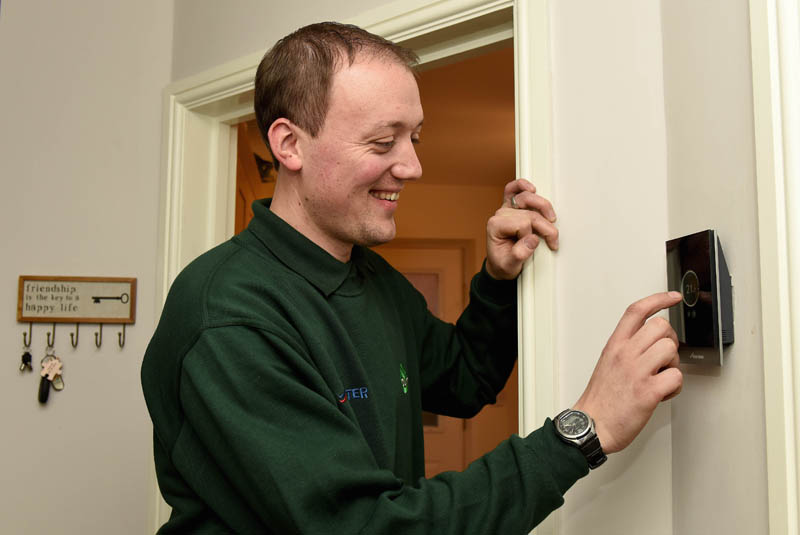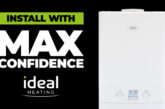
Consumers have unprecedented access to information and choice, and this is making them more discerning and demanding. For installers, the pressure is mounting to make the best possible choice for their customer, while offering a high quality and high speed service. Martyn Bridges, Director of Marketing and Technical Support at Worcester, explains what the digitalisation of the heating industry means for installers, and what they can do to stay ahead.
The use of digital tools within the heating industry is nothing new, but their proliferation across devices – particularly wireless devices that can be used anywhere, at any time – has augmented in the last couple of years. For the consumer, this means a mountain of information is now at their fingertips, which makes them more aware of the options available to them in the marketplace.
The same can also be said of installers, for whom comparison websites for insurance premiums, or online, downloadable product specifications, have become the norm.
The democratisation of information has its advantages, not least an opportunity for consumers and installers to make more empowered choices. Installers in particular are less likely to be swayed by promotions or one-off incentives offered by manufacturers or merchants, focusing instead on the best and most efficient option for their customer. This, in turn, results in the consumer getting a product or specification based on its merits and abilities for their homes, with the opportunity to reduce energy bills added to the bargain.
Remember who the expert is
The sheer quantity of information available online can make even Joe Public believe he is an expert in heating and appliances. This is making an installer’s customers more discerning, but also more demanding, with sometimes unrealistic expectations.
These days, it is not unusual for a homeowner to have researched their options online before the installer even arrives on their doorstep. In some cases, they will know the exact model and type of boiler that they want, and will simply expect the installer to source it and install it.
Installers should remember that seeing the heating system first-hand will nearly always go above and beyond whatever the customer has read online. If their recommendations differ to what the customer wants, they should not be afraid to discuss this with them, and offer advice and guidance on the right fit for them.

Think smart
In the wake of the Internet of Things comes the smart home, a connected domestic property with appliances and utilities that can be controlled through a phone, no matter where you are.
20 years ago, internet connectivity and central heating were as likely to be found together as a snow drift in Las Vegas, but the future will see both inextricably linked. This is already happening with the latest generation of smart heating controls, which enable heating and hot water to be managed remotely for added efficiency, comfort and convenience.
This kind of control gives consumers a greater awareness of their energy usage, which has the potential to reduce energy bills by 40%. Installers who offer these kinds of solutions to their customers are not only placing themselves ahead of the curve, but also saving their customers money on energy and heating bills. This kind of customer service will always be valued, and will guarantee installers repeat business further down the line.
The benefits of paperless practice
Paperless systems have been around for years now, but their evolution and expansion is causing industry to employ them in more creative ways. The Benchmark Commissioning Checklist, for example, plans to introduce an online system which would be aligned with Gas Safe. The benefits of this would not only be less paperwork – and who wouldn’t want that – it would also increase a homeowner’s visibility of their boiler’s servicing and maintenance history. In the long term, this would encourage homeowners to have their boilers serviced more regularly, which would mean more work for installers. More money for less paperwork – no-one can argue with that.
It’s an exciting time for installers as the digital world grows more complex and the smart home becomes a reality. This will have its share of challenges. Installers will need to fight a little harder to have their expertise heard above the online din, and rising consumer expectations on customer service, delivery options and prices will place pressure on installers to remain one step ahead.
Nevertheless, by empowering consumers to be more aware of their heating and energy usage, the heating industry is helping to cut the UK’s carbon emissions, while increasing the quality of service offered by its installers, and thus guaranteeing them more work for the future.
For more information on heating and hot water technologies from Worcester, Bosch Group, visit: www.worcester-bosch.co.uk













